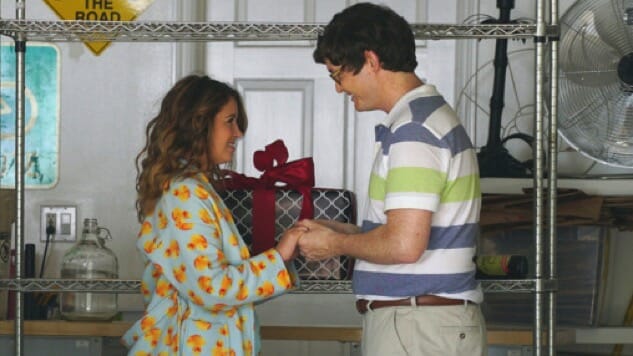You’re the Worst Returns, Still Strong at the Broken Places
(Episode 3.01)

This review contains spoilers from the season premiere of You’re the Worst Season Three.
We need to talk about Kether. Donohue, that is. The actress has always been You’re the Worst’s secret weapon, channeling the ingeniously featherbrained innocence of Judy Holliday and Marilyn Monroe into Lindsay’s crass, self-seeking ways, and “Try Real Hard” accentuates the comic tightrope she’s walking. The trick of Stephen Falk’s unorthodox sitcom, and in particular of Donohue’s performance, is to earn our affection with mean-spirited asides and narcissistic impulses; Lindsay’s naïveté might allow us to forgive her, but it’s enough of a put-on that we can’t quite forget. As she admits to Gretchen in the season premiere, the absence of inhibition is an inadequate excuse: “I’ve done tons of stuff drunk, and it all counts,” she says in that nonchalant squeal, less regretful than resigned. “My wedding, driving school, all my dentist appointments.”
-

-

-

-

-

-

-

-

-

-

-

-

-

-

-

-

-

-

-

-

-

-

-

-

-

-

-

-

-

-

-

-

-

-

-

-

-

-

-

-








































